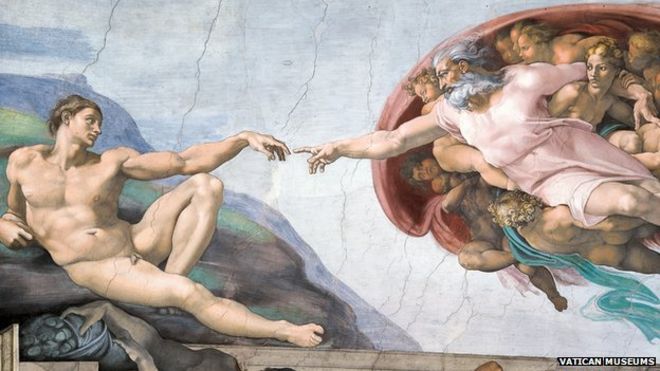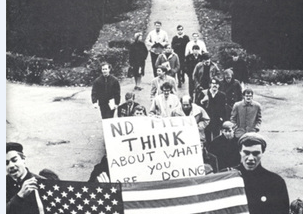Our Web Syllabus is the sole source of information for this course. I will change assignments and add mandatory readings and links throughout the semester. You are responsible for knowing about any of these changes, especially writing assignments. I strongly advise you to check this site at least three times a week.
Paper Sources
- John Kingdon, America the Unusual
- Cas Mudde and Cristobal Kaltwasser, Populism: A Very Short Introduction
- Karl Marx and Friedrich Engels, The Communist Manifesto
- Václav Havel, Open Letters: Selected Writings,1965-1990
- Carolina Maria de Jesus, Child of the Dark
As the proud father of two Notre Dame graduates, I am especially mindful of the high cost of assigned readings for Notre Dame students. Therefore, I do not use a course reader. Aside from the required books, all of our assigned readings are available on this syllabus. You should print all of the assignments marked PRINT. This is especially important for your Friday discussion sections since your TAs, Shana Scogin and Jeong Hwan Bae, will frequently ask you to refer to them. I recommend that you create a binder in which you assemble all of these readings.
You should print all of the assignments marked PRINT. This is especially important for your Friday discussion sections since your TAs, Shana Scogin and Jeong Hwan Bae, will frequently ask you to refer to them. I recommend that you create a binder in which you assemble all of these readings.
NOTE: Some of your article assignments can be found under the e-Locator heading on the Hesburgh Library site. My links go directly to this site. Type in the name of the journal and find a site that corresponds to the appropriate year and month of publication. Usually, the link will be JSTOR or Pro Quest Social Science.
In a time of democratic crisis in the West, Notre Dame students must keep up with the news! I recommend that you get into the habit of reading any decent online newspaper or news magazine on a regular basis. Many are free. Among the news sources I read on a daily basis are the New York Times and the Guardian. I also watch the German news show, Tagesschau. In my view, the best sources are usually those that openly identify and correct their errors (see our reading from John Stuart Mill). No one is perfect! If a news source does not admit to its mistakes, you should be skeptical of its reporting. I particularly recommend looking for international sources of information. There are some excellent news links and articles on Blogsideinn. I also highly recommend this survey of the world press: Watching America If you think our enemies are nasty, look at what our (diminishing circle of) friends say about us!
Virtual Sources
You, your classmates, and your TAs will engage in regular discussions and debates over Google Doc (or a similar medium). Participation in these virtual discussions is required. This format will help you prepare for your Friday sections by testing your ideas and encouraging you to argue with your classmates. Oh, politics is all about conflict. A little (non-violent) conflict in the defense of one’s views is a good thing!
Other sources are available on this syllabus. These include: Web links and links to online electronic sources in the Hesburgh Library. Again, if your assignment says PRINT, you must print it immediately for use at your discussion section. Psychologists have demonstrated conclusively that students learn much more from a printed document than from a web page.
Visual Sources
There are several required films in the course. The first and the third films will oblige you to attend evening showings on one of two alternative nights (i.e., you won’t have to attend both nights; you just choose the evening that works best for you).
Film #1: “The War at Home,”
A terrific documentary about the student protests at the University of Wisconsin, Madison. If you’re wondering, there were protests at Notre Dame, too (see photo evidence). Showings on both Monday, February 11 and Tuesday, February 12. Time and location TBA.
Film #2: “Journey to Russia.” In-class
Film #3: “Mr. Johnson” Showings on both Monday, March 26 and Tuesday, March 27. Both at 7:00 in B071 Jenkins Nanovic Halls.
Earning your Grades
You will earn your grades in this course by completing different types of assignments. We will have two take-home essays during the semester and one final examination (I will determine the format later). Make sure you meet the deadlines! The take-home essays will be docked 1/3 of a grade for every day they are late.
Your participation in discussion sections is a major part of your grade. By “participation,” I mean the quality of your comments during the section, your weekly writing assignments, and your virtual discussions over Google Docs. You will earn a lower grade by failing to attend class or discussion sections. We are watching!
First Reflective Essay 15 percent
Second Reflective Essay 15 percent
Participation 30 percent
Final Examination 40 percent
Human Resources
Your teaching assistants will play a major role in this class. They are here as much as I am to facilitate your education. Your TAs and I meet on a regular basis to discuss course objectives, identify topics for discussion sections, determine grading standards, and consider the progress of each of you as individuals. We care about both the course and your success in taking it.
Both your teaching assistants and I are here to serve you. Please do not hesitate to visit us during our office hours. You may certainly ask us specific questions about the course. But, you should also free to raise questions about any subject you like, including the meaning of life. Each of you is required to visit your TA at least once during the semester. For information about your TAs and their office hours, please consult the TA link on the right margin of this page.
Here is information about your respective sections, times, and locations:
I hold my office hours on Tuesdays from 1:30-2:30 and on Wednesdays from 2:00-4:00 in the fabulous, new Nanovic Hall (across from the Eck Alumni Center). My office number is 2080, near the Political Science department.
I am a teacher. I want to meet you. Visit me!
NOTE: Please do not use electronic devices of any kind during our class, including laptops, cell phones, tablets, tape recorders, FBI trap-and-trace technology or any other personal digital device. My classroom is a tweet-free zone!
